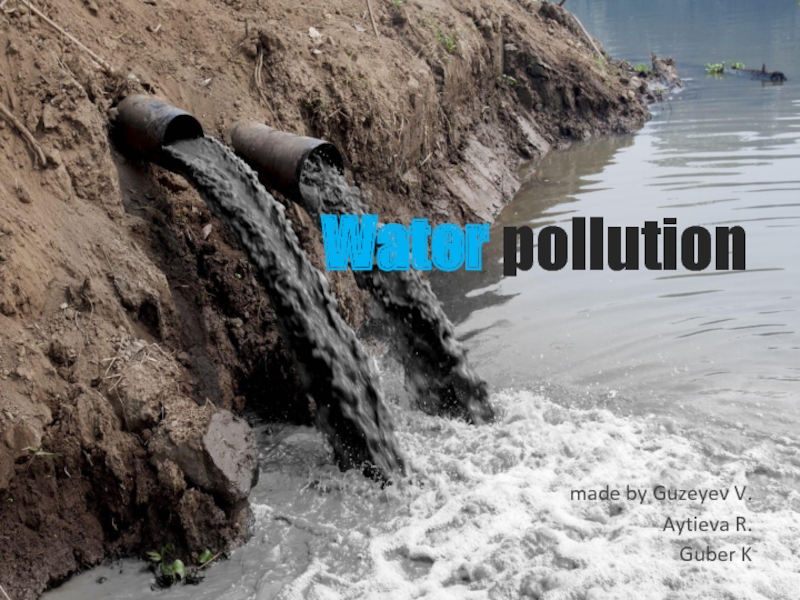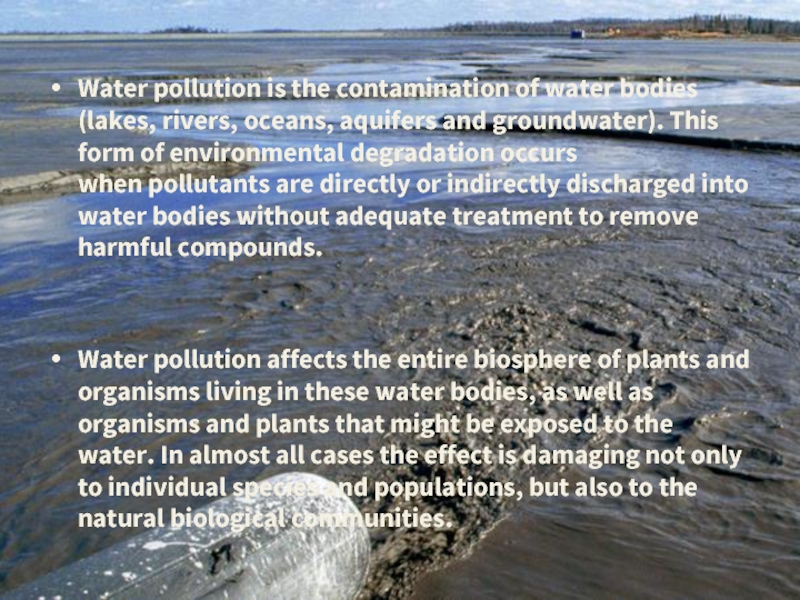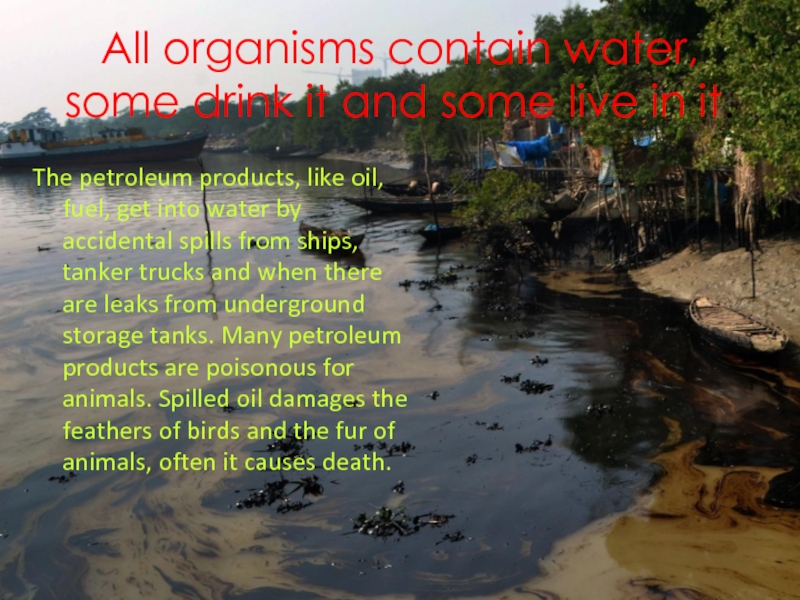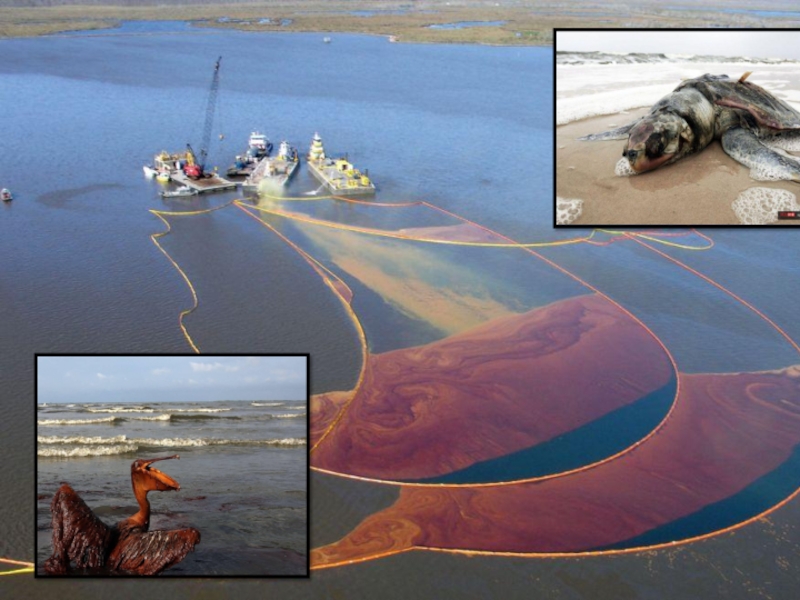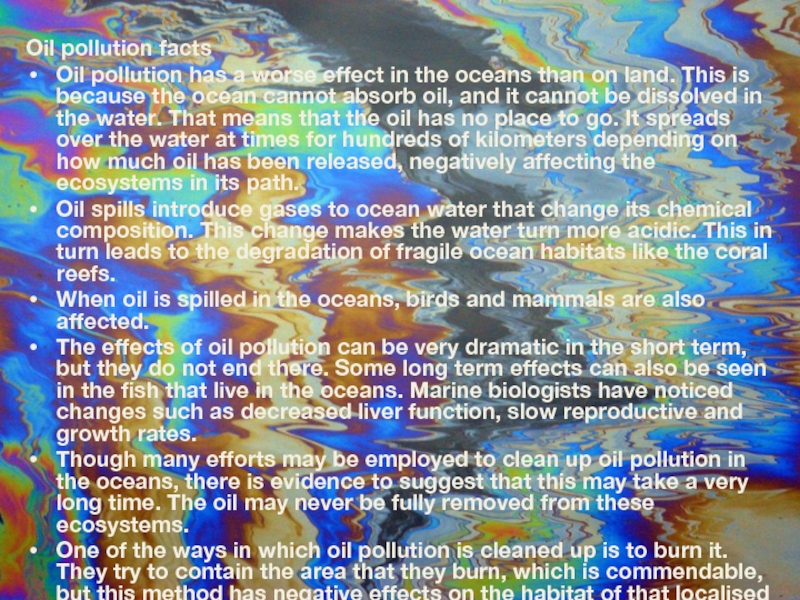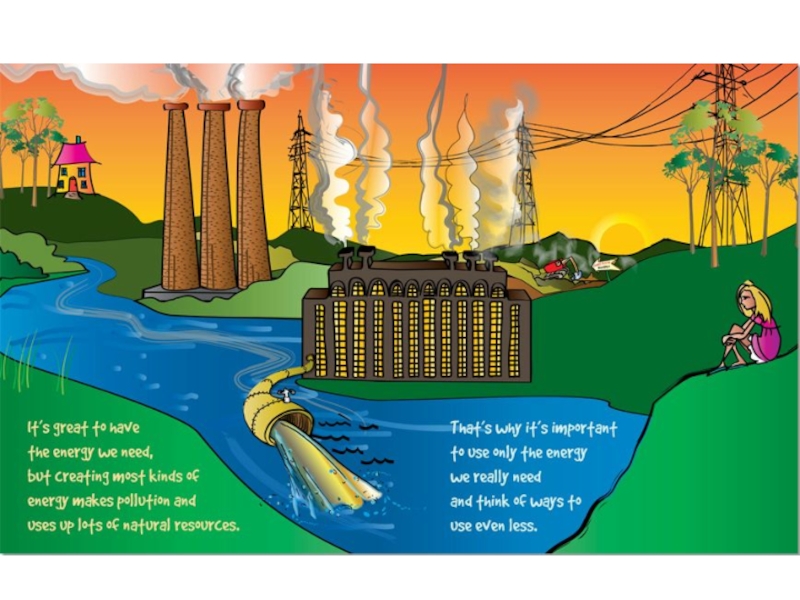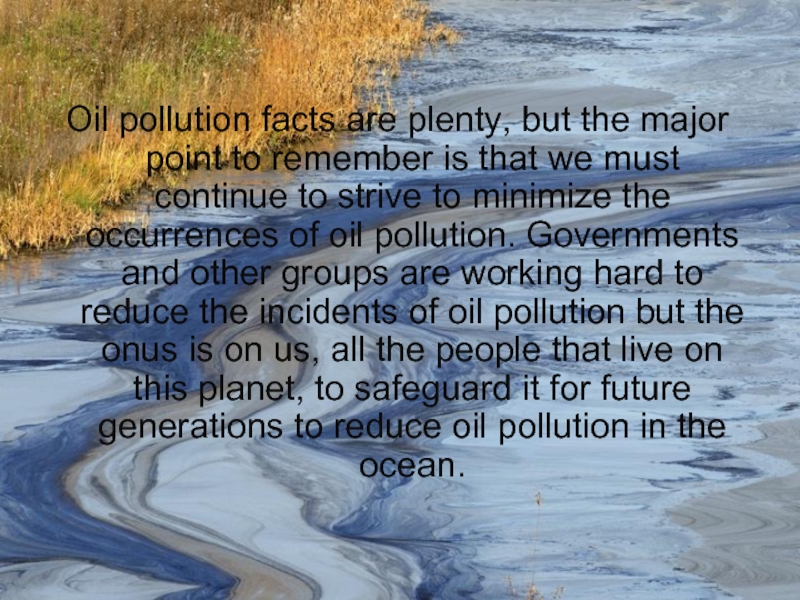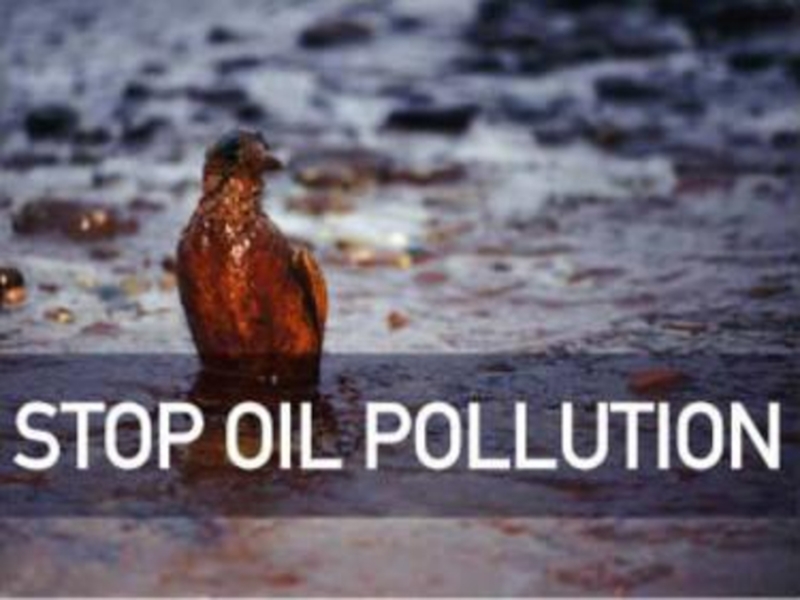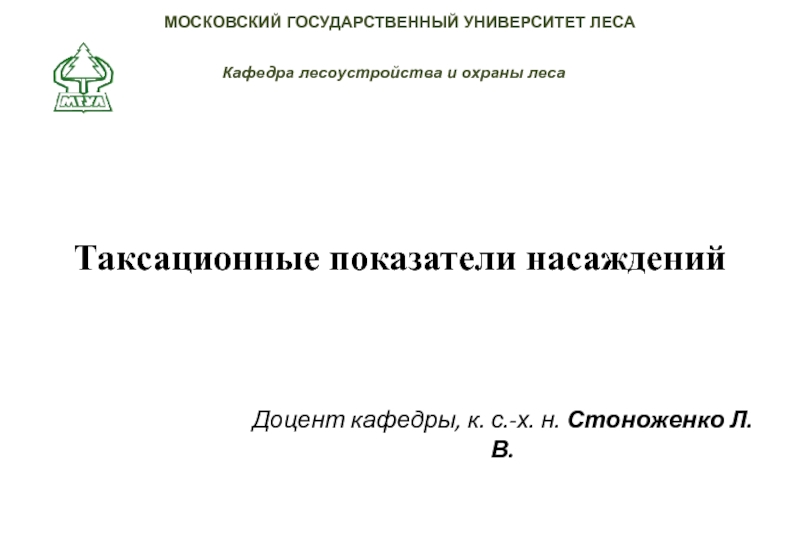- Главная
- Разное
- Дизайн
- Бизнес и предпринимательство
- Аналитика
- Образование
- Развлечения
- Красота и здоровье
- Финансы
- Государство
- Путешествия
- Спорт
- Недвижимость
- Армия
- Графика
- Культурология
- Еда и кулинария
- Лингвистика
- Английский язык
- Астрономия
- Алгебра
- Биология
- География
- Детские презентации
- Информатика
- История
- Литература
- Маркетинг
- Математика
- Медицина
- Менеджмент
- Музыка
- МХК
- Немецкий язык
- ОБЖ
- Обществознание
- Окружающий мир
- Педагогика
- Русский язык
- Технология
- Физика
- Философия
- Химия
- Шаблоны, картинки для презентаций
- Экология
- Экономика
- Юриспруденция
Water pollution презентация
Содержание
Слайд 2
Water pollution is the contamination of water bodies (lakes, rivers, oceans, aquifers and groundwater). This form of environmental degradation occurs when pollutants are
Water pollution affects the entire biosphere of plants and organisms living in these water bodies, as well as organisms and plants that might be exposed to the water. In almost all cases the effect is damaging not only to individual species and populations, but also to the natural biological communities.
Слайд 3All organisms contain water, some drink it and some live in
The petroleum products, like oil, fuel, get into water by accidental spills from ships, tanker trucks and when there are leaks from underground storage tanks. Many petroleum products are poisonous for animals. Spilled oil damages the feathers of birds and the fur of animals, often it causes death.
Слайд 5Oil pollution facts
Oil pollution has a worse effect in the oceans
Oil spills introduce gases to ocean water that change its chemical composition. This change makes the water turn more acidic. This in turn leads to the degradation of fragile ocean habitats like the coral reefs.
When oil is spilled in the oceans, birds and mammals are also affected.
The effects of oil pollution can be very dramatic in the short term, but they do not end there. Some long term effects can also be seen in the fish that live in the oceans. Marine biologists have noticed changes such as decreased liver function, slow reproductive and growth rates.
Though many efforts may be employed to clean up oil pollution in the oceans, there is evidence to suggest that this may take a very long time. The oil may never be fully removed from these ecosystems.
One of the ways in which oil pollution is cleaned up is to burn it. They try to contain the area that they burn, which is commendable, but this method has negative effects on the habitat of that localised area.
Habitats that are polluted by oil may take many years to recover. It could take mangroves up to 50 years to recover from oil pollution because they are particularly sensitive to oil.
